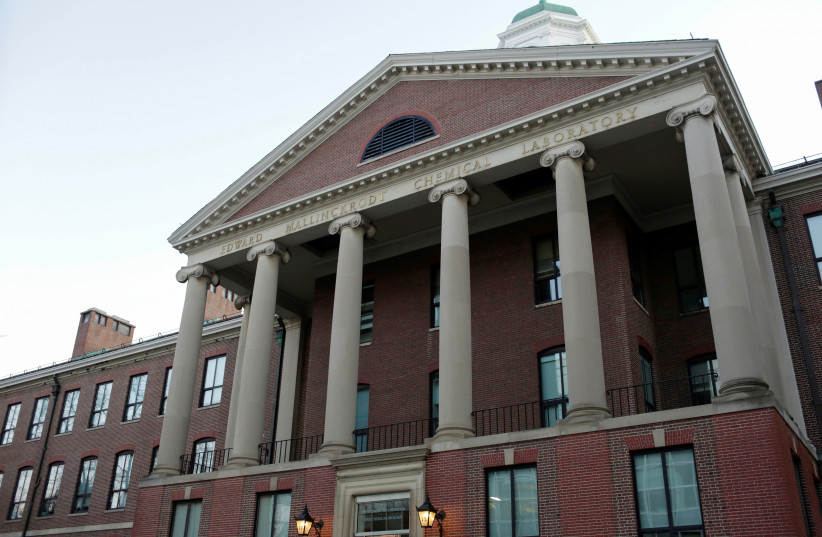Less than a month ago, The Harvard Crimson, the student newspaper at Harvard University, published an unsigned editorial offering a full-throated endorsement of the Boycott, Divestment and Sanctions movement in a potent symbol of a changing campus climate regarding Israel. A group of Israeli students has recently written a response op-ed for The Citizen - the independent, official student newspaper of the Harvard Kennedy School.
“We, the Israel societies of Harvard College and the Harvard Kennedy School, would like to respond,” they wrote. “It is important to note that we welcome criticism of Israel’s policies and laud anyone, anywhere, who stands up for the oppressed. But far from moving the conflict towards resolution or seeking justice for its casualties, be they victims of terror, civilians, or heroic journalists, Crimson’s endorsement of BDS supports a movement with deep ties to antisemitism and damages the pursuit of peace.”
The Israeli students who wrote the column stated that “the Crimson editors have aligned themselves with a movement the vast majority of Jews believe to be antisemitic,” and that “In its own words, BDS is not anti-occupation, but instead advocacy for replacing the Jewish state with a Palestinian one.
“The obvious question is what should happen to the seven million Jews who live today between the river and the sea were BDS (and, as of last week The Harvard Crimson), to achieve their goals. Hamas, whom a vast majority of the Palestinian residents of the region support, have a clear answer in their charter: ‘The Day of Judgment will not come about until Moslems fight the Jews, killing the Jews.’”
The op-ed was written on behalf of the Harvard Kennedy School Israel Caucus. “We represent around 20 students at the Kennedy School and around 10 at the College,” a representative of the group told The Jerusalem Post on Saturday.

When asked by the Post why they decided to write the column, the following official response was sent via e-mail: “The rise of BDS on American campuses shows a real tragedy where, despite students being motivated by justice, instead of actually working towards peace for everyone – Palestinian and Israeli alike – students want to create a simple story and ignore nuance.”
The students added in their op-ed that “Frankly, it is ludicrous and offensive to call Jews who arrived fleeing the death camps of the Holocaust, and their descendants, white supremacists. In fact, the majority of Israelis’ ancestry lies not in Europe but rather – like Palestinians and others – in the Middle East.”
They explained that “most of our grandparents came to Israel not fleeing the Nazis, but rather from places like Iraq, Yemen and Syria, countries Jews lived in for generations before being expelled after 1948. Our mother tongue is Hebrew, a Semitic language that shares its origins with Arabic and that is inscribed on ancient synagogues throughout Israel. It is baffling to call us colonizers.”
The Israeli students asked in the op-ed, “What would BDS at Harvard mean in practice?” and answered that “almost every Israeli would have to leave campus. Most Israeli students receive scholarships with links to our home country, as goes for almost all international students. The Crimson would thus de facto expel us under the academic boycott which BDS demands. Whilst Israelis and Jews in the Diaspora should not be conflated, BDS would send a clear message to us Israelis: Jews aren’t welcome at Harvard.”
Finally, they wrote “the truth is that there will be no justice for Palestinians or Israelis without peace. And there will be no peace without trust and dialogue from both sides. The editors of The Harvard Crimson seek to bury their heads in the sands of self-righteousness, ignoring compromise and nuance to keep their own hands clean.”
JTA contributed to this report.
